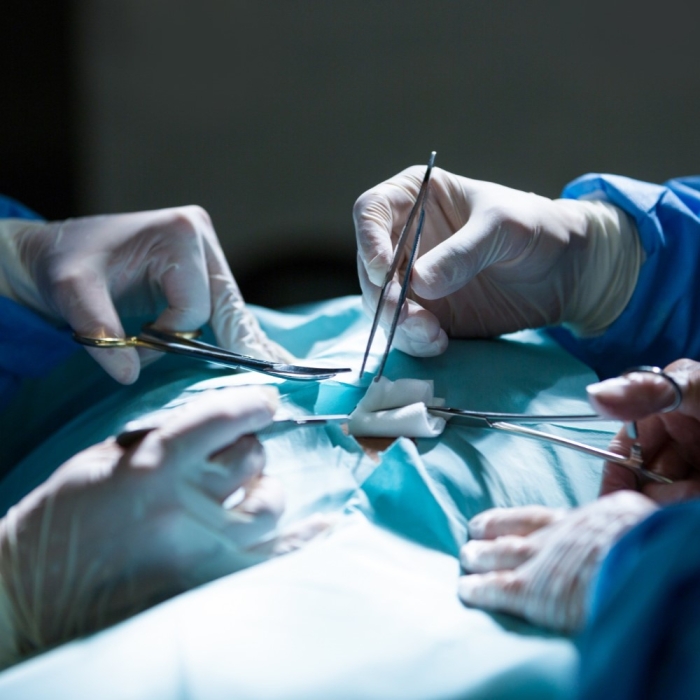A hernia is when an internal organ is dislocated from its normal anatomical position or cavity through a congenital or acquired opening. Hernias most commonly affect the abdominal wall. This is because the abdominal wall is made up of superimposed muscle flaps, and the possible weakness of these muscles, combined with the increased pressure inside the abdomen, contributes to the protrusion of abdominal organs (small or large intestine, cecum), i.e. the hernia.
The vast majority of abdominal hernias are inguinal hernias, with other hernias affecting other areas such as umbilical hernias, hernias around the navel, hernias resulting from previous surgery, and hernias of the groin and pelvic area. It can also be partly genetic, being more common in some families, but there are also predisposing conditions such as obesity, smoking and pregnancy. In addition, hernias can also develop in the scars of abdominal surgery. The most common causes of an acquired inguinal hernia are prolonged heavy physical work, weakening of the abdominal wall with age, and accidental injuries.

Inguinal hernias are more common in males, and the hernia develops through a duct formed during the fetal descent of the testicle. In women, true inguinal hernias are less common, and femoral hernias are more common. Detection of an abdominal hernia is usually by physical examination, but abdominal CT and MRI scans can also detect the presence of hernias.

Although it usually causes no symptoms at first, over time, inguinal hernia symptoms include burning, stabbing, sharp pain, mainly caused by traction on the peritoneum and intestinal lining.
Inguinal hernias increase over time and cause aesthetic and hygiene problems.
A large part of the intestine may also be located in the scrotum (scrotal hernia).
The skin over the hernia sac may thin and die over time, forming a spontaneous fistula.
The real danger of abdominal hernias is hernia extrusion, whereby the hernia contents that previously moved through the hernia cap become “stuck” in the hernia sac.
The tissue wall becomes oedematous (abnormally swollen with fluid).
Initially, this oedema may disappear after the contents are reinserted.
Over time, however, the venous circulation of the intestines may become disturbed and as the intestinal wall becomes waterier, the arterial circulation may be damaged, leading to definitive intestinal necrosis, with the release of bacteria, toxins and free radicals, causing local and then systemic infection, bloodstream infection and eventually death.
Hernia is a surgical disease, there are different solutions to close the hernia gate and strengthen the abdominal connective tissue skeleton, which is determined on an individual basis. This is true for the type of approach (open or laparoscopic surgery), the size and type of mesh or, in rare cases, the omission of mesh.